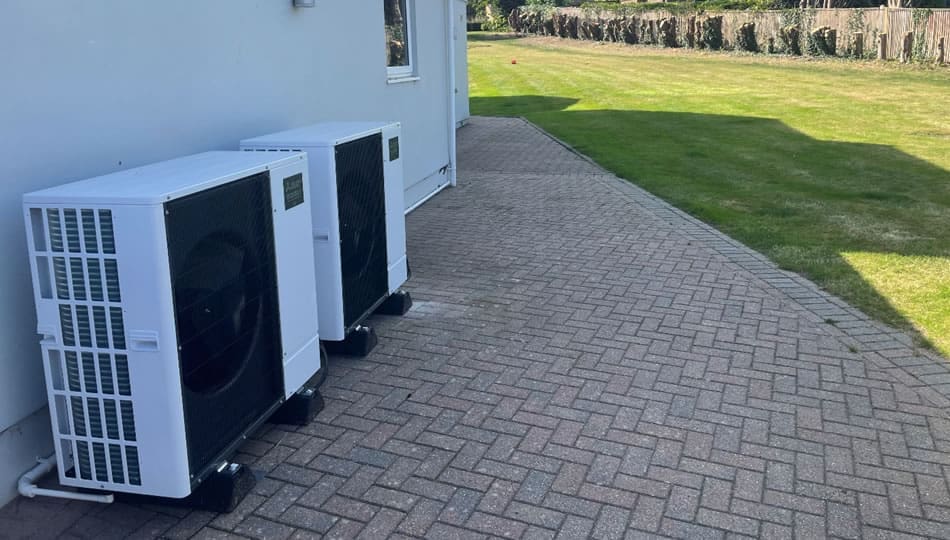
An Installer’s Perspective for the UK Market
As installers with years of experience in the heating industry, we’ve encountered numerous misconceptions about heat pumps, particularly in the UK market. Heat pumps are an efficient and eco-friendly solution for home heating, yet several myths persist that can deter homeowners from making the switch. In this blog post, we’ll address these misconceptions and provide clarity to help you make an informed decision about heat pumps.
One of the most pervasive myths is that heat pumps don’t work well in cold climates, making them unsuitable for the UK’s chilly winters. This is simply not true. Modern heat pumps, especially air-source heat pumps (ASHPs), are designed to operate efficiently even in temperatures below freezing. Advances in technology, such as variable-speed compressors and enhanced refrigerants, have significantly improved their performance. Ground-source heat pumps (GSHPs) are even more resilient to cold weather, as they draw heat from the ground, which remains at a relatively constant temperature year-round.
While it’s true that the initial installation cost of a heat pump can be higher than that of a traditional boiler, the long-term savings often outweigh the upfront investment (plus with the Government’s Boiler Upgrade Scheme grant of £7,500 you can mitigate some of the cost). Heat pumps are highly efficient, with a typical coefficient of performance (COP) of 3 to 4, meaning they produce 3 to 4 units of heat for every unit of electricity consumed. This efficiency can translate to lower energy bills dependent on your cost of electricity compared to gas. Moreover, heat pumps have fewer moving parts compared to combustion-based systems, leading to lower maintenance costs over their lifespan.
Noise concerns are another common misconception. Early models of heat pumps were indeed louder, but modern units are designed with noise reduction in mind. Most high-quality heat pumps operate at sound levels comparable to a refrigerator. Proper installation further minimizes any noise, ensuring the unit runs quietly and efficiently.
Many people believe that heat pumps are only suitable for new, well-insulated homes. While it’s true that heat pumps perform optimally in well-insulated buildings, they can also be retrofitted into existing homes. In fact, there are many successful case studies of heat pumps being installed in older properties. Upgrading insulation and improving airtightness can enhance the performance of a heat pump in any home, making them a viable option for a wide range of properties.
Some homeowners worry that heat pumps won’t be able to supply enough hot water for their needs. However, modern heat pump systems are designed to meet the heating and hot water demands of a household. They can be paired with a hot water cylinder to store and supply hot water, ensuring you have a consistent supply. Additionally, hybrid systems that combine heat pumps with traditional boilers can provide an extra boost if needed.
Contrary to this belief, heat pumps are one of the most environmentally friendly heating options available. They reduce carbon emissions by utilizing renewable heat from the air, ground, or water. Even though they require electricity to operate, the overall carbon footprint is significantly lower compared to fossil fuel-based heating systems (pair a heat pump with solar and you can offset this even further). As the UK grid continues to decarbonize, the environmental benefits of heat pumps will only increase.
Heat pumps represent a significant step forward in home heating technology, offering efficiency, cost savings, and environmental benefits. As an installer, we’ve seen firsthand the positive impact they can have on homes across the UK. By addressing and debunking these common misconceptions, we hope more homeowners will consider heat pumps as a viable, sustainable heating solution. If you’re considering a heat pump for your home, consulting with a professional installer can provide tailored advice and ensure a successful transition to this innovative heating technology.
Subscribe to the OHM newsletter for exclusive energy incentives and offers.